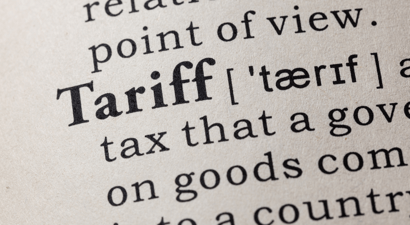THE NATIONAL CONSUMER COMMISSION: HEROES OR VILLAINS?
The writer recently attended the Durban session of the National Roadshow of the National Consumer Commission (“NCC”). Tongue in cheek, the attendance was not motivated by Sun Tzu’s quote in The Art of War of “know you enemy and know yourself…”. The attendance was aimed at meeting the people we deal with regularly at the NCC and to better understand the NCC’s perspective on difficult issues.
The NCC is tasked with ensuring compliance with the Consumer Protection Act 68 of 2008 ("CPA"), by ensuring fair business practices and ensuring the welfare of consumers. No-one can criticize the noble task of the NCC.
The NCC has taken the textile industry by storm since its emergence in the industry. Section 24, read with regulation 6 of the CPA deals with product labelling. Annexure D to the CPA contains the regulated goods. The NCC has been steadfast in its strict interpretation that goods must, at the time of importation, have labelling which:
- Reflects the Country of Origin;
- Provides Care instructions; and
- Contains the Fibre content.
Goods not conforming with these requirements are detained. The NCC does not allow compliant labels to be affixed post importation. The detention is often for a substantial period resulting in excessive storage and demurrage costs, making any legal action against the NCC unattractive. Compliance is key to avoid costly detentions. One way to ensure compliance is having an agent in the country of export inspect the labels prior to loading.
The strict enforcement by the NCC has made it unpopular with importers due to the options it provides where contraventions have taken place (Destruction or re-exportation of goods).
These options are costly and can lead to job losses. There are several less restrictive measures importers have suggested to the NCC, namely:
- Allowing non-compliant goods to be labelled in South Africa by designated entities, under Custom supervision, which can provide much needed new jobs; and
- Having a penalty amount payable up to a maximum of one time the value of the goods.
Several issues have been raised by industry pertaining to the application of the CPA:
- Human error from overseas suppliers leads to blameless importers incurring associated costs. For small business potentially ruinous.
- Confusion regarding the labelling requirements.
- Delays in resolving matters.
- Frequency of stops, especially where labelling requirements have previously been shown to be adhered with, bearing in mind that SARS and the SAPS also stop containers for routine checks for other authorities.
The NCC has addressed some concerns by publishing a guide on labelling. The guide needs to be more widely disseminated. The NCC has also hosted several events to impart key information to industry and receive suggestions from industry. Whether the recommendations will be implemented remains to be seen.
The Roadshow highlighted again that the NCC consists of good people trying to carry out their mandate to the best of their ability. They accept that there are grey areas, and possibly a need for amendments to alleviate the unintended consequences of enforcement. The clothing and textile industry needs to engage constructively with the NCC to find solutions that do not prejudice the NCC in its important mandate but avoids absurd or unfair consequences for importers who are not at fault for non-compliance.
Regardless of your perception of the NCC, it is here to stay and the clothing and textile industry needs to make sure of the labelling requirements and ensure procedures and checks are in place to avoid the draconian consequences of non-compliance.
Shepstone & Wylie is here to assist with your NCC needs.





